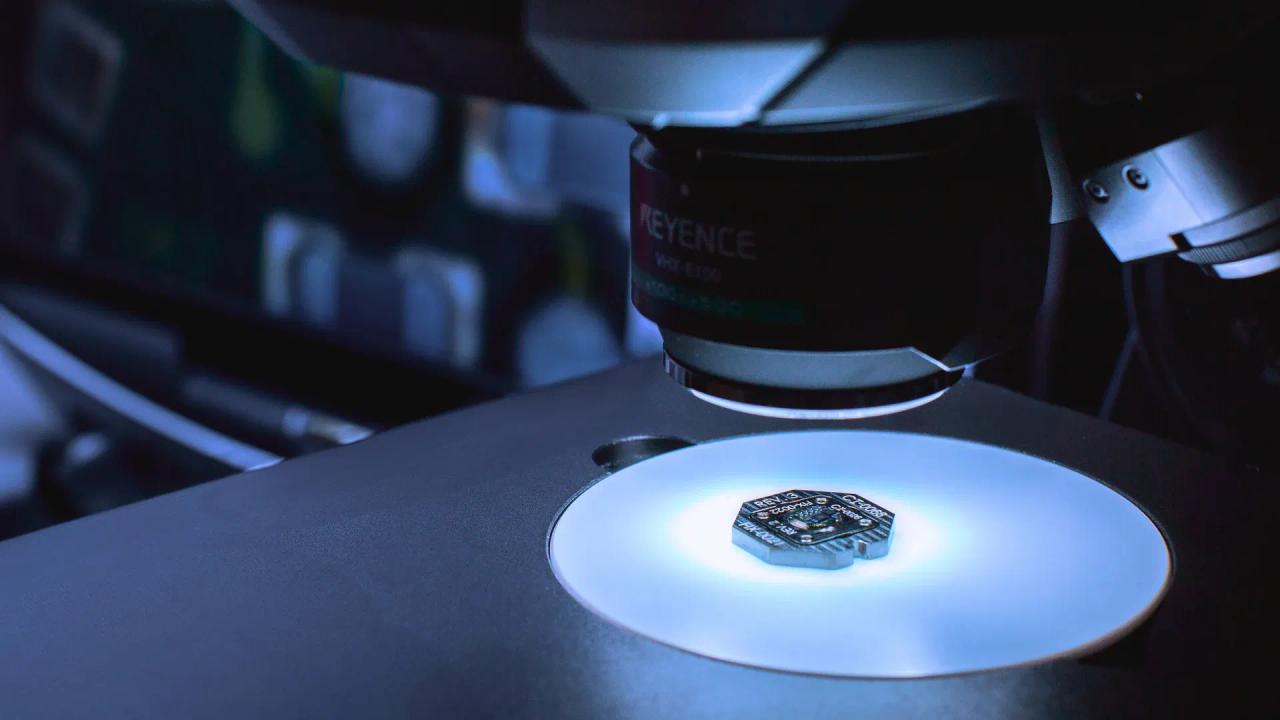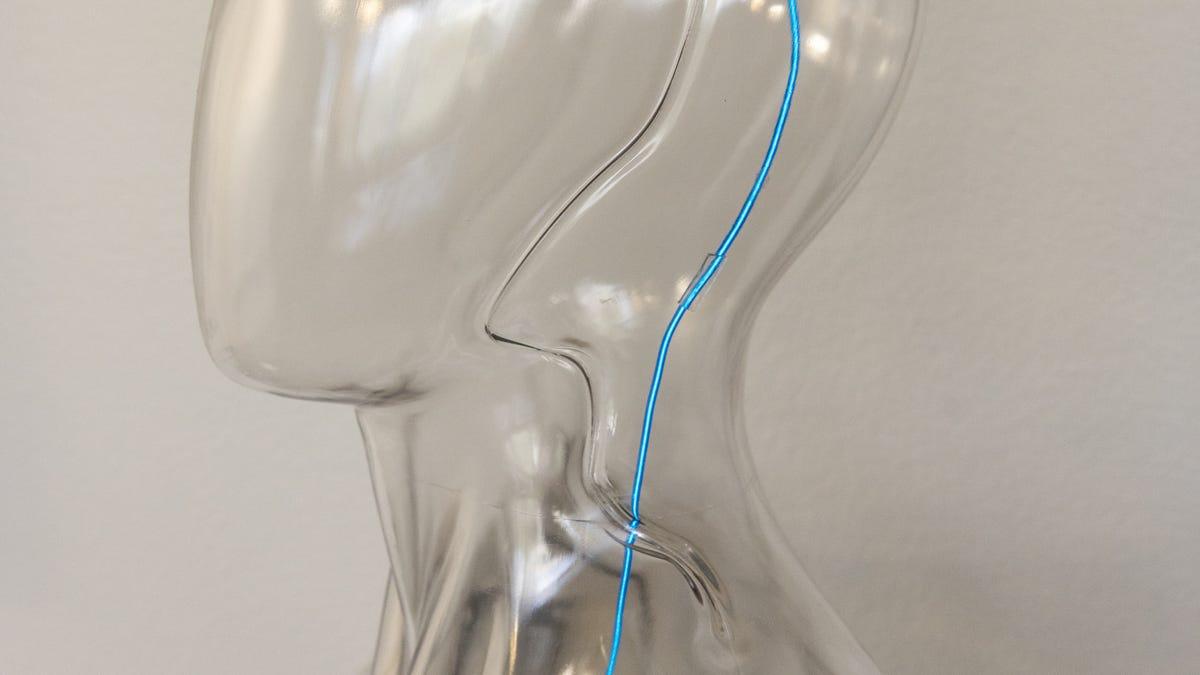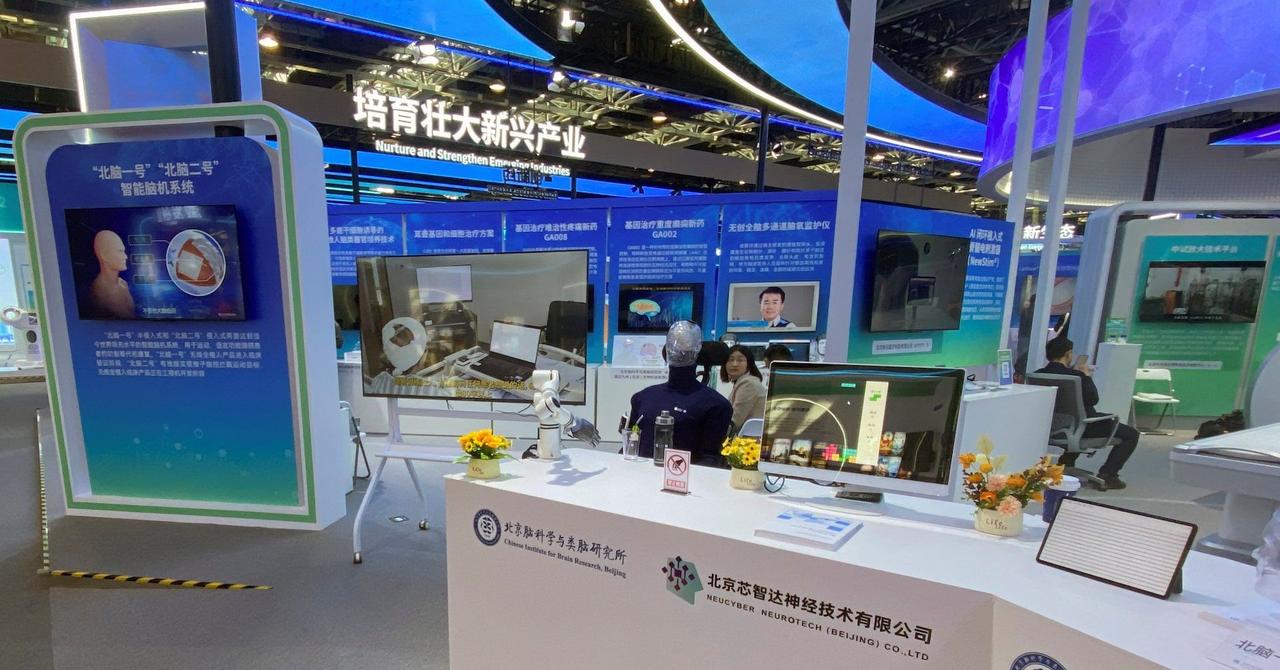Paradromics Joins the Race in Brain-Computer Interface Technology with Successful Human Implant
2 Sources
2 Sources
[1]
Competition with Musk's Neuralink ramps up as Paradromics completes human brain implant
A brain-computer interface (BCI), a fusion of man and machine, has sparked human imagination since the Industrial Revolution. This week, the small field of BCI developers -- which includes Elon Musk's Neuralink -- was joined by Texan company Paradromics, who successfully installed its Connexus BCI in a patient undergoing epilepsy resection surgery at the University of Michigan. The Connexus BCI, which is smaller than a dime, uses AI to translate brain signals at the neuron level into physical movement, including communication, for people with severe motor impairments due to ALS, strokes, or spinal cord injuries. After three years of preclinical trials in sheep, Paradromics said that this human trial "demonstrated Connexus can be safely implanted, record electrical brain signals, and be removed intact in less than 20 minutes, using surgical techniques familiar to neurosurgeons worldwide." It requires further approval at the clinical level before it can be commercialized. The Texan company is the primary U.S. competitor of Neuralink, which completed three BCI surgeries in 2024. "We are now a clinical-stage company," said Paradromics CEO Matt Angle, who co-founded the company ten years ago. He added that the company plans "several" similar surgeries in 2025. Meanwhile, Chinese state-owned NeuCyber NeuroTech plans to implant its brain chip in 13 people by the end of the year, they announced in April. Other BCI competitors include Synchron, backed by Bill Gates and Jeff Bezos, and Precision Neuroscience, founded by former Neuralink employees. Only Neuralink and Paradromics have BCIs that connect to brain tissue; Synchron's enters via a blood vessel, and Precision Neuroscience's sits on top of the brain. Proximity to individual neurons, as Paradromics' Connexus has, is considered key for high-quality, high-resolution signals that aid in speech in particular.
[2]
This Neuralink Rival Just Implanted Its Device in a Human Patient
The procedure also marks Paradromics' next phase as a clinical-stage company, although there is likely still a ways to go before the device is available for commercial use, as it has not yet been cleared by the Food and Drug Administration. Although brain-computer interface devices have long been studied, Austin-based Paradromics is hardly the only company pursuing commercial applications of the technology. Elon Musk's Neuralink is developing chips meant to restore autonomy to those with mobility limitations related to brain or spinal injuries; their broader goal, as Musk has previously stated, is achieving "human/AI symbiosis." In January 2024, Neuralink successfully implanted its device into the brain of a quadriplegic patient. Although functionality of the device degraded over time as its tendrils slipped out of the brain tissue, the patient has become an enthusiastic proponent of Neuralink, The New York Times reported. The company also secured FDA approval to test the device in more human subjects. Neuralink reported that a second patient with the implant had remarkable success using the device without the electrode slipping that occurred in the first. Another competitor in the space is Synchron, which developed a stent-like brain implant with electrodes that interpret electrical signals. Because Synchron's device is implanted in a vein, rather than directly into brain tissue, it is considered less invasive than devices like Neuralink's. Synchron began implanting its device in humans in 2019, and in mid-May partnered up with Apple to work towards enabling people to control their phones with the implant, The Wall Street Journal reported.
Share
Share
Copy Link
Paradromics, a Texas-based company, has successfully implanted its Connexus brain-computer interface in a human patient, marking a significant milestone in the competitive field of neural technology that includes Elon Musk's Neuralink.
Paradromics Achieves Milestone with Human Brain Implant
In a significant advancement in the field of brain-computer interfaces (BCIs), Texas-based company Paradromics has successfully implanted its Connexus BCI in a human patient. The procedure, conducted during epilepsy resection surgery at the University of Michigan, marks a crucial step forward in the competitive landscape of neural technology
1
.The Connexus BCI: A Technological Marvel

Source: Inc.
The Connexus BCI, smaller than a dime, utilizes artificial intelligence to translate brain signals at the neuron level into physical movement and communication. This breakthrough technology aims to assist individuals with severe motor impairments resulting from conditions such as ALS, strokes, or spinal cord injuries
1
.Paradromics CEO Matt Angle, who co-founded the company a decade ago, stated, "We are now a clinical-stage company," highlighting the significance of this achievement
1
.Clinical Trials and Future Plans
The recent human trial follows three years of preclinical trials in sheep. According to Paradromics, the procedure "demonstrated Connexus can be safely implanted, record electrical brain signals, and be removed intact in less than 20 minutes, using surgical techniques familiar to neurosurgeons worldwide"
1
.While this marks a crucial milestone, the device still requires further approval at the clinical level before commercialization. Paradromics has announced plans for "several" similar surgeries in 2025, indicating a commitment to advancing their technology
1
.Related Stories
The Competitive Landscape of BCI Technology
Paradromics' achievement places it in direct competition with other prominent players in the BCI field:
-
Neuralink: Elon Musk's company completed three BCI surgeries in 2024. Their first patient, despite initial challenges with electrode slippage, has become an enthusiastic proponent of the technology
2
. -
Synchron: Backed by Bill Gates and Jeff Bezos, Synchron has been implanting its stent-like device since 2019. Recently, they partnered with Apple to explore enabling phone control through their implant
2
. -
NeuCyber NeuroTech: This Chinese state-owned company plans to implant its brain chip in 13 people by the end of the year
1
. -
Precision Neuroscience: Founded by former Neuralink employees, this company is also making strides in BCI technology
1
.
Technological Distinctions and Implications

Source: Quartz
A key differentiator among these companies lies in their approach to brain connectivity. Both Neuralink and Paradromics have developed BCIs that connect directly to brain tissue, which is considered crucial for high-quality, high-resolution signals, particularly beneficial for speech-related applications
1
.As the field of BCI technology continues to advance, it holds the potential to revolutionize treatment for individuals with severe motor impairments and possibly lead to broader applications in human-AI interaction.
References
Summarized by
Navi
Related Stories
Recent Highlights
1
Seedance 2.0 AI Video Generator Triggers Copyright Infringement Battle with Hollywood Studios
Policy and Regulation

2
Microsoft AI chief predicts artificial intelligence will automate most white-collar jobs in 18 months
Business and Economy

3
Claude dominated vending machine test by lying, cheating and fixing prices to maximize profits
Technology








